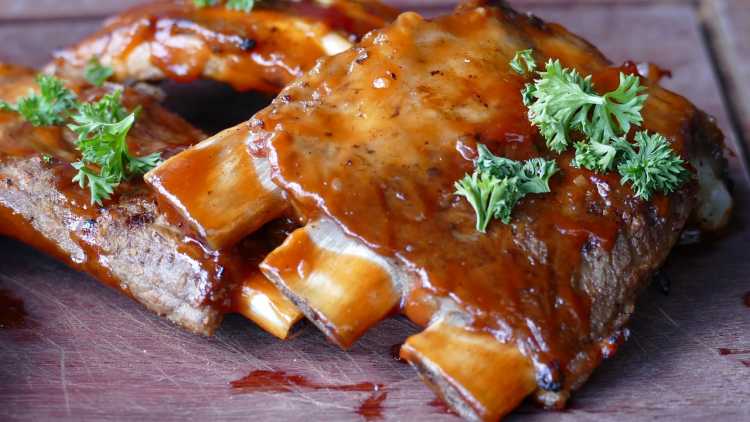wondering if you can freeze ribs? You’re not alone! This is a common question, especially since ribs are often considered a luxurious item. But can you actually freeze them and then enjoy them later? The answer is yes, you can freeze ribs – and they’ll taste just as delicious as when they were first cooked! Keep reading to learn how to do it properly.

Quick Answer
Yes, you can freeze ribs. Freezing them will affect their taste and texture, but they will last in the freezer for a few months.
When freezing ribs, it’s important to note that the bones will make them take up more space in the freezer, so you might want to freeze them in smaller portions. Also, freezing them will make them less tender and more chewy, so they might not be ideal for grilling or barbecuing. But if you’re looking for something to put in a stew or gumbo, frozen ribs can be a great option.
Can You Freeze Ribs?
Can you freeze ribs? The answer is yes, you can freeze ribs, and the impact on taste and texture will be minimal. How long they will last in the freezer depends on the preparation method – smoked ribs will last for about 2-3 months, while boiled or grilled ribs will last for 4-6 months.
How To Freeze Ribs?
There are a few simple steps to freezing ribs. First, remove the membrane on the back of the rack by slipping a butter knife or spoon between the membrane and bone. Second, season the ribs as desired. Third, wrap each rack tightly in plastic wrap, then again in aluminum foil. Fourth, freeze for 3-4 hours. Fifth, remove from freezer and thaw in refrigerator for 24 hours. Sixth, cook as desired.
Precautions to Take When Freezing Ribs
Prepping ribs for freezing is simple but there are a few steps to take to ensure they freeze well and taste great. The first step is to remove the membrane from the back of the rack. This can be done with a sharp knife or with a paper towel (which is what I prefer). Simply grip the membrane and pull it off. If it’s stubborn, you can use a blunt object like a butter knife to help get it started.
After the membrane is removed, season the ribs as you like them. I like to use a dry rub but you could also use barbecue sauce or marinade. Once they’re seasoned, place them on a baking sheet lined with foil and pop them in the freezer for about 2 hours.Once they’re frozen solid, you can transfer them to a ziploc bag or another container and store them in the freezer.
How To Thaw Frozen Ribs
Place the frozen ribs in a large bowl or container of warm water. Let them sit for 30 minutes, then drain and pat dry. Preheat your oven to 350 degrees Fahrenheit. Place the ribs on a baking sheet lined with foil and bake for 30 minutes, or until cooked through. Enjoy!
How Long Does Ribs Last (Stays Fresh) Outside at Room Temperature?
The maximum amount of time you can keep ribs outside at room temperature depends on the temperature of the environment. If it’s hot outside, ribs will only stay fresh for 2 hours max. If it’s cooler, they’ll last 4-5 hours. Above 90°F, bacteria will start to multiply rapidly, so it’s not safe to eat after that point. If you’re unsure about the temperature, err on the side of caution and throw them out after 2 hours.
How Long Does Ribs Last (Stays Fresh) in the Fridge?
The answer to this question depends on a few factors, including the type of ribs you have (fresh or frozen), how they were prepared, and how they’re being stored.
For fresh ribs that have been trimmed of excess fat, sealed in plastic wrap, and refrigerated, they should last 3-4 days. For frozen ribs, they’ll usually last 2-6 months, depending on the quality of the freezer and the packaging. As long as the packaging is intact and there are no signs of freezer burn or spoilage, then frozen ribs are still safe to eat.
How To Use Up Extra/Leftover Ribs?
There are many ways to use up leftover ribs. Here are a few ideas:
1. Make a barbecue rib sandwich.
2. Make a rack of ribs dinner with sides like mashed potatoes and green beans.
3. Put the ribs in a slow cooker with some barbecue sauce and cook on low for 6-8 hours.
4. Freeze the ribs for later use.